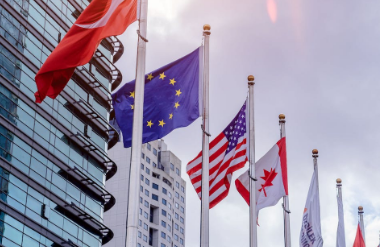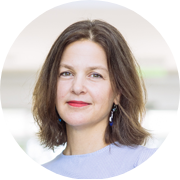Does the rise of non-western states such as China, India, South Africa, and Brazil threaten the dominant model of international politics?
The Peace of Westphalia in 1648 ended Europe's thirty-year war. It was also, in essence, a diplomatic-institutional agreement that sought to organise the continent's political life on new principles: of national sovereignty and non-intervention, of a country's right to self-defence, of international law moulded by the logic of a balance of power. Over the centuries this European-state-centred dynamic became universal, as - in the wake of European colonial expansion - Westphalia irradiated institutions, rules, practices and concepts that the various peripheries gradually assimilated.
This centuries-long development both expressed and exacerbated deep disparities between the world's "have" and "have-not" nations. More recently, in the last three decades, new powers from the global south have risen within Westphalian parameters - including China, India, South Africa, and Brazil. These countries have accordingly enhanced their world status, but in ways very different from earlier experiences.
During the cold war, most successful middle-level regional powers - such as Canada, Sweden, Australia, and Japan - were western and/or pro-western. They were democratic, stable, and satisfied; had low internal inequality; acted moderately on the international stage; and sought to bridge the gap between global north and south and defuse tensions between west and east. In general, their initiatives in foreign policy strengthened the Westphalian system in terms of its core norms, procedures and values.
Today's equivalent powers are from the periphery; their political regimes differ; their houses are not completely stable; their economic position is variable; they are dissatisfied with the current world order; they have high levels of domestic inequality; and their behaviour, in response to the west's demands for more international responsibility, is often unorthodox and challenging. In short, these emerging powers have benefited from Westphalia yet in practice also criticise the prevailing system.
Five issues at stake
This raises the question: are these countries in effect creating a new model for organising global politics, which could be called "Southphalia"? A way to evaluate this is by reference to several key aspects of the respective models. Here are five, each of which deserves more detailed scrutiny.
First, there is the issue of values. The emerging countries of the south complain about the unjust distribution of global power - but they seem to be concerned mainly with expanding their own influence and voice in world affairs. That is, they look more interested in joining the club of the powerful than in empowering their peers from the periphery.
Second, there is the issue of policies. Westphalia was marked by the pro-status quo attitude of major powers and their partners. Southphalia acts like a soft reformist, trying to constrain the choices of the powerful and to increase its own autonomy. Its language can sound tough and confrontational, but the most relevant emerging powers are - at least until now, and probably for the near future - less revisionist than dissatisfied actors. They are playing within, not against, the rules of the game.
Third, there is the issue of institutional development. Westphalia built a network of international regimes that ultimately legitimised the predominance of the most powerful and influential. Southphalia uses the existing institutional architecture, but adds its willingness to amend and transform it. Just as the principal actors of Westphalia combine multilateralism (for example, the United Nations) and minilateralism (for example, the G7) so does Southphalia: IBSA (India, Brazil, and South Africa) and the BRICS (Brazil, Russia, India, China, and South Africa) are two southern cases of the multilateralism of small numbers.
Southphalia does offer a noticeable institutional innovation, however. This is the impulse to construct regional initiatives such as the Shanghai Cooperation Organisation (sponsored by China) and the South American Defence Council (advanced by Brazil). Their benefits include acting as buffer mechanisms, enabling their members to avoid western involvement in crucial diplomatic and military areas.
Fourth, there is the issue of ideas. Westphalia established foundational principles that remain the cornerstone of inter-state relations. Now, major actors within the emerging world are voicing new Southphalian concepts. China has proclaimed the virtues of "hexie shijie" (harmonious world) as a guide for global affairs. India has promoted Gandhi’s notion of "trusteeship" as an expression of the search for collective spiritual development and a more egalitarian order. Brazil, since the fiasco in Libya in 2011, has been calling for “responsibility while protecting” as an alternative to western manipulation and mismanagement of the “responsibility-to-protect” principle. Thus, the south is introducing fresh ideas that contest the west's dominant (but weakening) assumptions. In short, Southphalia is attempting to reconfigure the logic of politics, law and morality by which power, legality, and ethics are intertwined and reinforced.
Fifth, there is the issue of leadership. Westphalia has been based on the deliberation of the few and the conventional style of leadership of the most powerful. Hegemony by a single power or bloc has been its prevailing mode. Here there is no innovation from the south: Southphalia is not investing in more participatory and pluralistic forms of deliberation, nor stimulating different modes of concerted, joint, collaborative and/or distributive leadership.
To sum up, Southphalia shows some elements of continuity and change from Westphalia. Will the coming years see Southphalia's extension, not without resistance from the west, or its assimilation by a Westphalian system displaying a persistent capacity to adjust?
(*) Director of the Department of Political Science and International studies at the Universidad Torcuato Di Tella in Buenos Aires.











